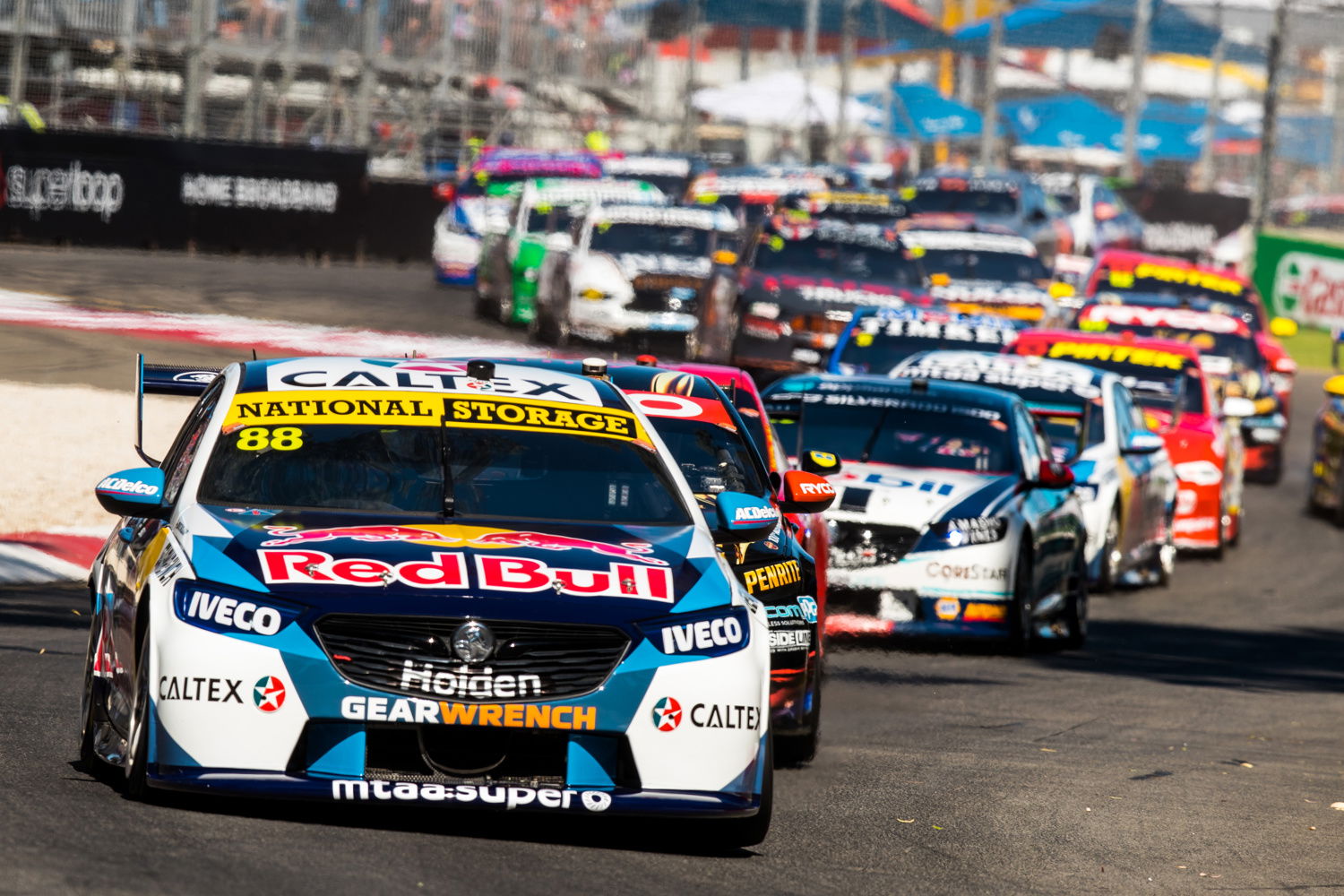

Supercars will be a solely V8-based formula “for the foreseeable future” under the championship’s new Gen3 regulations.
The current Gen2 regulations that Supercars runs to allow for engine configurations other than V8s can be part of the category.
Triple Eight Race Engineering was developing a twin-turbocharged V6, which was set to be introduced to the championship with the arrival of the Holden ZB Commodore in 2018.
Initially, the ZB Commodore was launched with a V8 with a view to introduce the V6 in select wildcard entries before being rolled out in place of the previous engine fleet.
However, that project was parked and the category has remained solely V8 powered ever since.
Speaking with Speedcafe.com, Supercars’ Chief Sales and Marketing John Casey said the championship will be solely V8-powered under Gen3. Though the new chassis will be capable of facilitating hybrid technology.
“I think we had cause to consider again who and what our DNA is, who and what our fans are looking for,” said Casey when asked about alternative engine configurations.
“We are V8 naturally aspirated for the foreseeable future. There’s variations within that. There’s slightly different architectures.
“I’d love to see a bit of variation; quad cams, single cams, push rods, flat-plane cranks. That’d be nice to see some variation, but that’s to be determined.”
Supercars has also announced plans for a category-branded engine that could be used by manufacturers to lower barriers to enter the championship.
Organisers have previously investigated introducing a category engine and partially developed a generic V8 for new manufacturers. Discussions around the concept have been ongoing for over a decade.
Casey said a category V8 would work for some manufacturers, but not all.
“We (Supercars) won’t be for every manufacturer, pure and simple,” said Casey.
“But then again, there’s some brands that may not have V8, they might say, okay I’ll take the white label engine because for us that’s fine.
“For other brands they might say, ‘No, V8 is not for us’. Plenty of brands are walking away from and have walked away from fossil fuel based motorsport full stop.
“We’re not asserting that we’re for everybody. This is our formula. We will fit with some, some we won’t fit, and that’s perfectly fine. We’re not trying to be everything for everybody.”
Casey explained that Supercars plans to approach manufacturers using the Ford Mustang and Chevrolet Camaro ZL1 as examples of the category’s proposed new look.
Supercars has signalled plans to acquire manufacturer intellectual property that would allow for more makes and models to join the category.
“It won’t be up to us to influence them,” he said.
“All we can do is be very clear on our platform, very clear on our rules, and make the barriers to participation as low as possible.
“In that area, we focused on making the chassis accommodate as many road car dimensions as we can, so it’s as flexible as possible.
“We’re strongly considering a white label for those that don’t have that configuration of engine.
“But there’ll be plenty of manufacturers for whom they either don’t want to participate in motorsports, that don’t want to participate in supercars, or for whatever reason they can’t. And that’s perfectly fine.
“I think part of what we will do is make a range of manufacturers – as many as we can get to, if they’re interested – make them aware of the platform, the changes, what they can and can’t do, gauge their interest.
“The reality is, we’re not British Touring Cars, we don’t want 10 or 11 brands on the grid. Two’s fine, three or four would be great.
“So I would think about it that way. But I think that the impetus to get a new brand on board may come from us, or more than likely will come from the team.”




















Discussion about this post